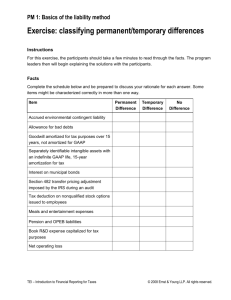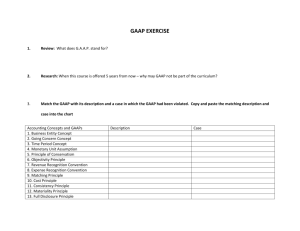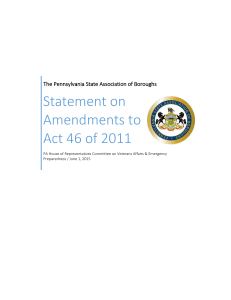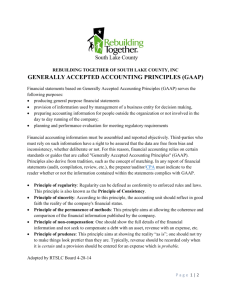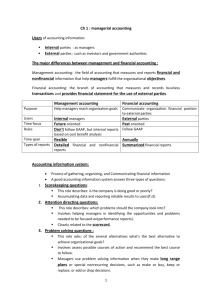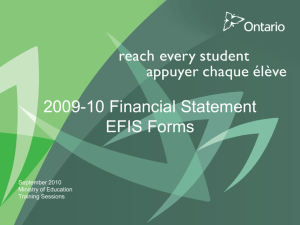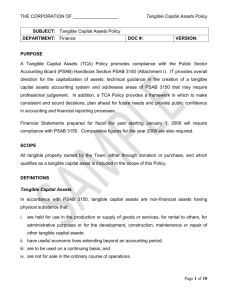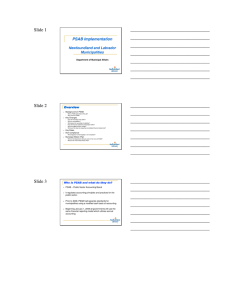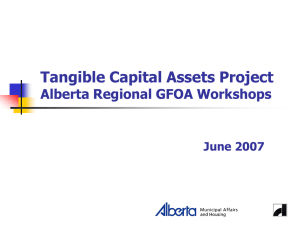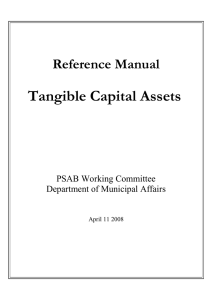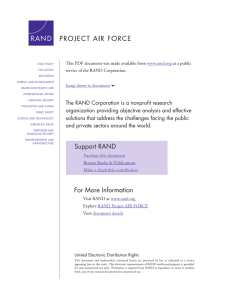Presentation - Department of Community Services
advertisement
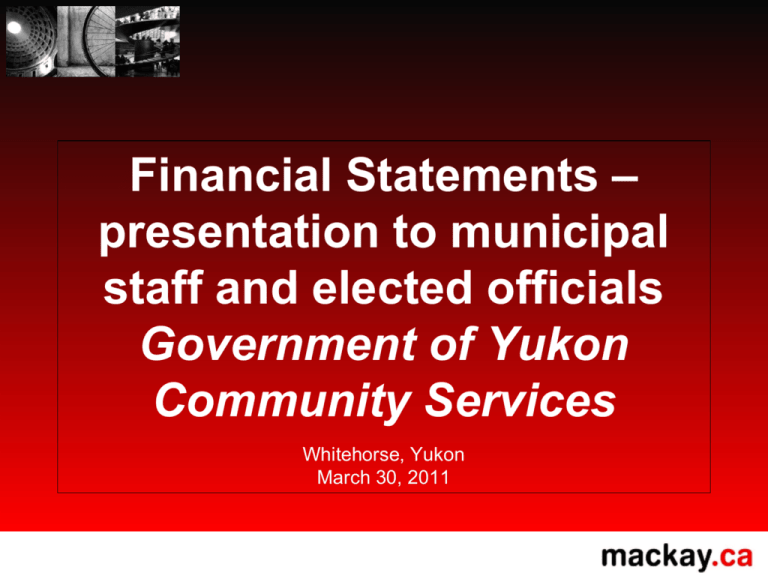
Financial Statements – presentation to municipal staff and elected officials Government of Yukon Community Services Whitehorse, Yukon March 30, 2011 Presentation Outline Users of the Financial Statements (F/S) F/S Components Introduction to Public Sector Accounting Board (PSAB) Reporting model Recent change to the reporting model: Tangible Capital Assets (TCA) Non-compliance with Generally Accepted Accounting Principles (GAAP) Audit opinion Subsequent consequences What to look for in F/S Users of the Financial Statements Community residents Mayor and Council Resources available to your community and how they are used Leadership and management of council Planning and good decision making Validated information by professional independent auditor Governments Funding decisions F/S Components F/S have 4 Statements (plus Notes): 1. 2. 3. 4. Statement of Financial Position Statement of Operations Statement of Change in Net Financial Assets Statement of Cash Flows Also required: Schedules – i.e. Tangible Capital Assets and Segmented Information Significant accounting policies – i.e. Tangible Capital Assets, Revenue Recognition Comparative balances for all statements, notes, and schedules Budget figures (approved by Mayor and Council) TCA Schedule - Example Introduction to PSAB What is PSAB? External organization, part of the Canadian Institute of Chartered Accountants What does it do? Sets financial reporting standards for all governments (Federal, Provincial/Territorial, Local) across Canada Why? • • • To enhance public confidence in public sector reporting: Accountability Transparency Comparability Reporting model PSAB F/S are reported on a full accrual basis Expenses are recorded as incurred Cash does not need to be disbursed for an item to be recorded as an expense (i.e. sick leave) Cash basis may be used for budgeting purposes Remember: Different basis = different results! Budget ≠ F/S Recent change to the reporting model: TCA Tangible Capital Assets (TCA) Roads Buildings Vehicles Machinery and Equipment Land Water and Sewer Infrastructure Old Financial Statements PSAB Financial Statements Expense Asset / Amortization Expense Capital expenditures are charged directly to operations or transferred to capital fund Capital payments recorded as TCA Cost is amortized over the useful life of the asset (except land) Statement of Operations Asset – Statement of Financial Position Amortization – Statement of operations Non-compliance with GAAP Audit report: Unqualified – Objective: No significant issues! Reserved: Qualified: positive opinion on the financial statements as a whole, but qualifies due to a departure from GAAP or a limitation in the scope of the examination (departure is not pervasive – can be isolated) Adverse: financial statements are not presented fairly in accordance with GAAP (generalized issue) Denial: Unable to form an opinion Non-compliance with GAAP Subsequent consequences: Could affect financing costs with banks Could affect receipt of funds from other governments Public concern over council’s management practices Federal Gas Tax agreements require that municipalities comply with PSAB – possibility of funds being held back Affect eligibility for other federal and territorial programs – risk of reduced funding What to look for in F/S Audit opinion Significant differences between current year and prior year/budgeted figures Notes should always agree to the F/S Accumulated Surplus o o Key indicator of a municipality’s financial health Does not represent excess cash Does represent its net worth Contingent liabilities (i.e. lawsuits) Subsequent events: Important events that occurred after the year-end, but before the date on which auditor signs opinion (and Council takes responsibility for the F/S
